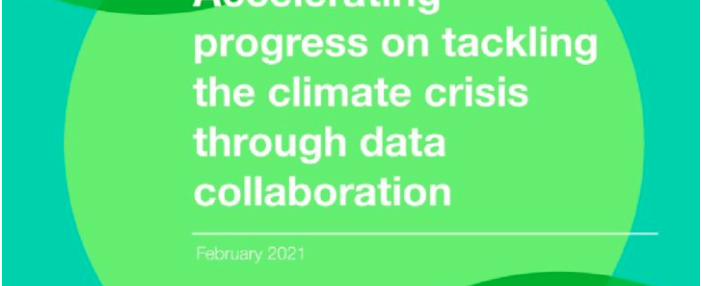
This paper was also co-authored by Jay Neuner, former ODI Consultant, and Scarlet George, Oxford Insights Consultant.
Speed is of the essence when it comes to working together to combat the challenges of climate change. Yet no single organisation holds or controls all the relevant data to combat the threat, and no country, continent, organisation or initiative alone, however vast, has the resources and skills needed to use data in tackling all the significant climate issues of our time.
People, organisations and communities therefore need to coordinate and collaborate around the collection, use and sharing of data. As part of the Open Data Institute (ODI) and Microsoft’s ongoing partnership we seek to advance the cause of open, trustworthy data sharing and collaboration, such that any organisation of any size can more easily collaborate around data and realise its benefits in tackling climate change.
The partnership is designed to support Microsoft’s wider Open Data Campaign. As part of this work, the ODI conducted research between July and December 2020 to identify priority areas within climate change where there is an opportunity to accelerate progress by increasing collaboration around data.
This paper explores the data ecosystem and potential types of data collaboration that might be required in six priority areas:
- Achieving net-zero value chains through better tracking of scope 3 emissions
- Supporting a 'green' recovery from coronavirus (Covid-19)
- Reducing energy consumption in commercial buildings
- Improving water resource management
- Reducing the climate impact of urban transportation
- Reducing waste
The paper is intended for use by governments, corporations, civil society organisations, scientists and citizens to inform their decisions affecting the climate.
The ODI and Microsoft are also looking for partners across the public, private and third sectors, globally, who are interested in supporting data collaboration in these areas. If you work on any of the six issues, hold or use relevant data, or have feedback or questions on this paper or the research behind it, please get in touch at [email protected].